On El Camino de Santiago in Spain, they would say, “Your pilgrimage begins when your Camino ends.”
I didn’t fully understand the saying, because this was supposed to be my pilgrimage. This waking and hiking, eating and sleeping to wake and hike again. 30 days. 500 miles. Saying hello and goodbye. Reaching the end of the world, the end of myself. This was my pilgrimage.
I wanted my walk across Spain to change me. I had no idea that it couldn’t.
I thought that transformation would be etched into me mile after mile and that when I returned home I would be a different person. After all, how can you walk across an entire country and not be changed?
One friend said upon my departure, “You’ll still be you, just with new experiences.” My anger told me she was right.
Coming home from the Camino was depressing. Not because I didn’t want to return home or to the prison where I worked, but because I did not understand that coming home was the second half of my pilgrimage. I had stood on the shores of Finisterre and in the cathedral of St. James, but my journey wasn’t over yet.
Perhaps this experience is what opened my eyes to the journey that the men in prison were on and the kids in wilderness therapy were undertaking. I watched as they completed their programs with fortitude and hope, only to return home and flounder. Many of them coming back to do their programs again.
Somehow, we were all missing the key to transformation.
So I began searching for the key. That search led me to teachers like Joseph Campbell, Bill Plotkin, Richard Rohr, Alexander John Shaia, and many more. I began to understand the Hero’s Journey as the road map to transformation. I could see how the kids in wilderness therapy were on that journey, and I could see how returning citizens were missing their return threshold. But I still didn’t understand how your pilgrimage begins when your journey ends.
One day, I reached out to Alexander John Shaia, author of Returning From Camino as well as Heart and Mind: The Four-Gospel Journey for Radical Transformation. He was gracious enough to talk with me on the phone and share his insights on the Hero’s Journey as a former student of Campbell himself.
He explained to me that it’s not the journey that changes us. The journey only awakens us to new possibilities. Real transformation happens, he said, when we come home and make the 1,000 new choices we need to make to actually be the new person we long to be. Transformation happens when we live into the new possibilities that our journey awakened us to.
Until then, we’re just a seed planted in the ground.
Our pilgrimage begins when our Camino ends because our Hero’s Journey isn’t over yet. Whether we are traversing the mountain trail, pacing the prison walls, or wandering the halls of recovery, what makes our journey a Hero’s Journey is the Gift we bring home to our communities.
Without the Gift, we’re just an adventurer. That’s exciting, but it’s not heroic.
This is what I was trying to express in my post, Becoming the Hero on Our Journey. And it’s why there is a deep fear around coming home, because we don’t want to fail or be rejected. If this gift becomes our hope for a new way of life, a new way of belonging in our community, and it gets rejected, or it’s not enough somehow, then what hope do we have left? Where can we turn except back to our old ways?
And yet, bearing our Gift like fruit born into the world is what gives meaning to the death of the seed, the old way of being that we once embodied. And how can we return to that which we have died to?
It’s actually in the offering of our Gift, like a tree offers its fruit, that we live into the transformation that we seek. Alexander John Shaia calls this the Road of Riches, the fourth path, and it’s all about maturing in service to others.
The truth is, what makes our journey transformative is when it becomes about serving others instead of serving ourselves. That’s what transforms an adventurer into a Hero. An adventurer goes on a journey to find treasure for himself, but he becomes a Hero when he gives it away.
“Father feels he has struck something better than gold. For a time he may try to hug the new treasure to himself. He may not see at once that he has barely scratched a limitless lode which will pay dividends only if he mines it for the rest of his life and insists on giving away the entire product.” (Alcoholics Anonymous, pg 129)
My conviction grows that this Returning Home to give away our Gift is the key to the recovery we seek. I hope you’ll join me as I explore this possibility in the weeks to come.


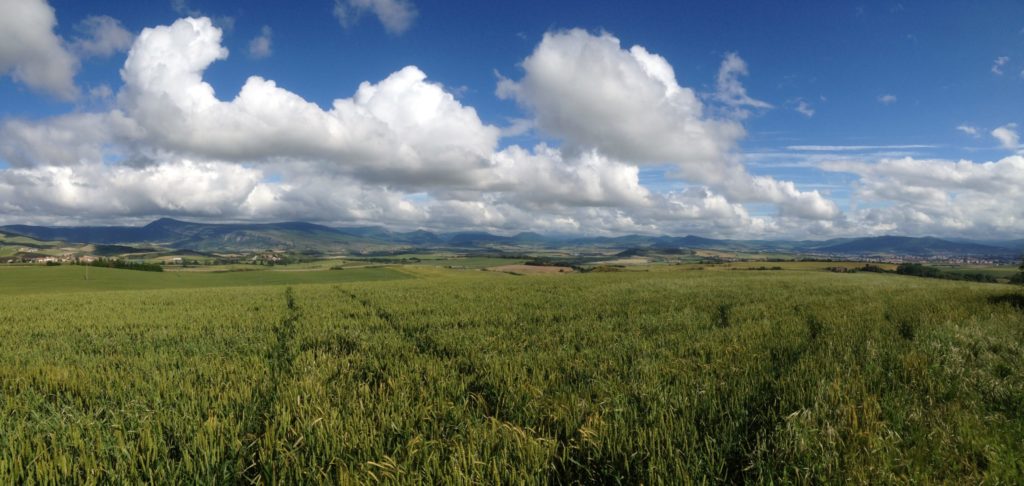

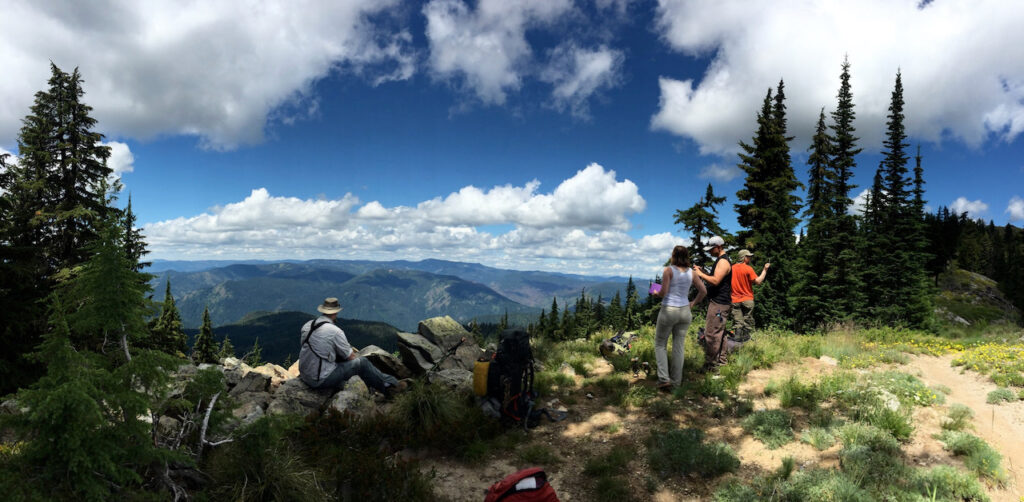
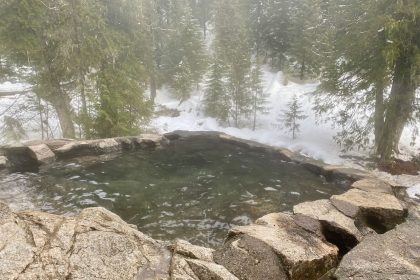
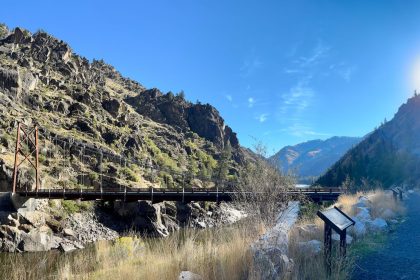
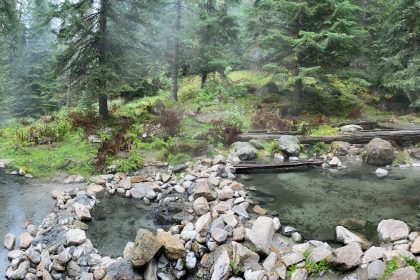
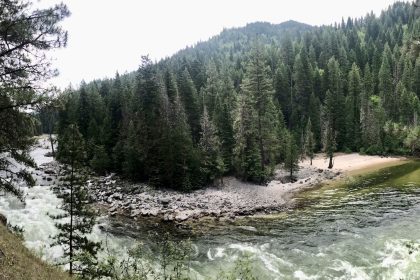
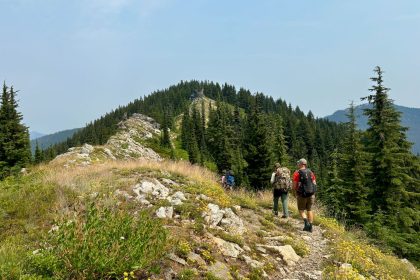
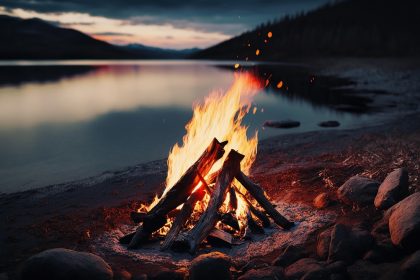
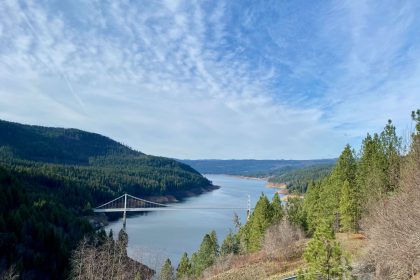
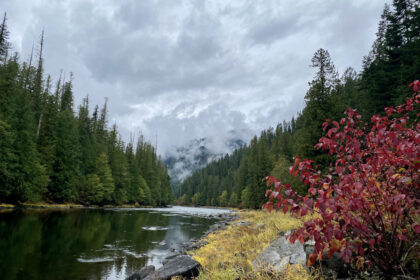
[…] with a few of you on trail. As you may know, I have a passion for mentoring and the journey of personal transformation. I have been developing these ideas as Discovery Treks and Go Journeys on Clearwater Trekker, and I […]
[…] power of your travels into your life.” This is the Hero returning with his Gift to his community. It is the key to transformation. We honor our travels when we give space for the seeds of opportunity that were planted on our […]
[…] *Originally published on http://www.ClearwaterTrekker.com […]
[…] is the point of the Hero’s Journey. This is why your pilgrimage begins when your Camino ends. Returning Home with your Gift is the key to transformation because it is only in relationship to each other that we find our sense of identity and our lives […]